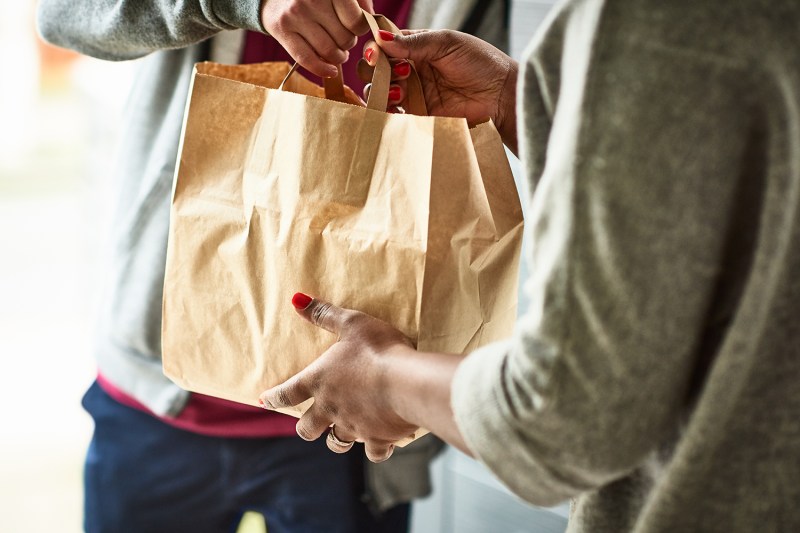Even if you don’t follow the news closely, you’re likely aware of the unionization push as of late. Companies across the country, chain food outfits especially, are looking to union up. But why now?
For starters, there’s nothing really new about this movement. It goes back well over two centuries when the Industrial Revolution was taking off and the nature of human labor began to change (and that’s just in this young country, as there’s evidence of trade guilds dating back to the Mesopotamian era). Mechanization was the name of the game, with machines and technology making countless trades more efficient. En route, working-class people were marginalized and needed to band together to hold on to a basic set of rights and protections.

That’s a gross simplification of a deep historical topic, but in essence, it serves well. It also guides what is going on today, in addition to some other key factors — namely, a pandemic and a still-ailing economy. Workers all over are rightly concerned about their safety as well as compensation and a labor plan that allows for health and sustainability. For ages, many of these jobs have been subject to low pay and few enticements. In short, a union allows laborers strength in numbers. As a unit, they can battle it out with the powers-that-be so their needs are met.
It’s no wonder we’ve seen a rise in unions over the last couple of years. Employees at places like Starbucks, Apple, Trader Joe’s, and more want to be recognized for what they do. Frankly, customer service and factory and warehouse work these days can be scary, especially as we navigate a fluid public health crisis. On top of that, inflation has made everything more expensive, from gas to groceries. Many unions are forming in response to such conditions, pushing to make sure their members are set up to make ends meet.
Companies of all sizes have seen moves toward unionization. Burgerville, the progressive fast-food chain based in the Pacific Northwest, became the first of its kind to unionize. The Burgerville Workers Union formed in 2016 and continues to guide the company’s ethos. It has produced a lot of good and the company now offers its employees health care, paid vacation and sick time, life insurance, and education access, among other things. For a burger joint with about 40 locations, that’s pretty impressive.
Unions are far from perfect, but the humane ideals behind them are hard to argue with. But they don’t just come about. In fact, many companies fight against their creation, looking to keep costs down and an upper hand when it comes to negotiating power. Amazon is perhaps the biggest company to be actively dealing with unions. Some warehouses have formed them, with the backing of President Biden. Many others are nowhere close, with the companies actively steering people against unions and threatening those who join.
What we know for certain is that union membership is up lately and the vast majority of Americans support them. Some dub the current era as The Great Resignation, but for many, throwing in the towel is not an option. With the pandemic still on our collective mind, it feels more like The Great Reflection. Workers are holding a mirror up to the labor system and exposing some ugliness. Many feel the only way they could return to a role or stick it out with a company is if their interests are taken into serious consideration.

Here are a few other reasons why food chains, especially, are considering unions right now.
Minimum Wage Reform
States around the country are rethinking what a livable minimum wage might look like. Chain restaurants and other food establishments often pay in this way, at least for their entry-level employees. If more unions come into existence, there’s a greater chance that some significant minimum wage legislation will end up on the ballot.
To Catch Up
Inflation is soaring and what used to work economically is not necessarily enough right now. For the near future, at least, larger companies or going to have to offer some real enticements to attract and hold on to laborers. These companies tend to move slowly, but that may not be effective as we deal with bear market after bear market and staff shortages in all kinds of fields. This is a chance for large companies (that can easily afford such a thing) to make a real move toward worker retention and social sustainability.
For the Precedents
When multinational corporations put people first, there’s a ripple effect. If some name brands honor these movements, they’ll not only show awareness but inspire other companies elsewhere to do the same. Whether you are a fan of institutions like McDonald’s, Safeway, Pepsi, and the like, these brands create huge optics and can serve as models for countless other brands.
The conversation between company and employer is as vigorous as ever, with both sides eager to weather this economic storm and any others that follow. We’ll have to see how the unionization effort continues to shape that conversation. So far, unions are asking big questions about what it means to work for something like a chain food company nowadays in America.


